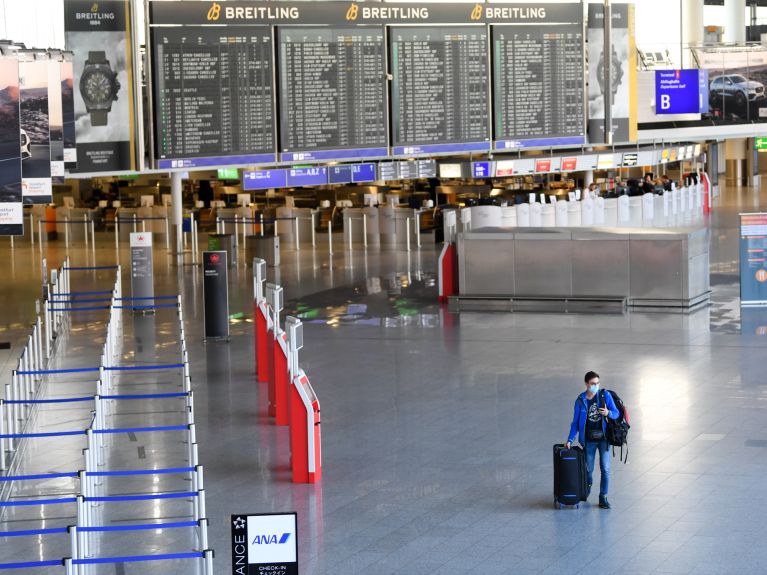“Certain catch-up effects”
The world after the coronavirus: Sonja Peterson doubts that the coronavirus crisis will have long-term effects on climate change.

Professor Peterson, what effects has the coronavirus crisis had on climate change? Do you have current figures for Germany, Europe, and the world?
In the short term, the suppression of economic activity as a virus control measure has also reduced emissions. For example: during the financial crisis in 2009, global gross domestic product shrank by around 1.7 per cent compared with the previous year. This led to a 1.4 per cent reduction in global emissions from the combustion of fossil fuels and cement production. Because of the coronavirus crisis, a global decline in GDP of 2.5 to 3 per cent is predicted. This could lead to corresponding emission reductions of 2 to 3 per cent. But the financial crisis also shows that this is a unique, short-term effect that is negligible compared with long-term trends. I doubt that the coronavirus crisis will have any noticeable long-term effects on emissions and climate change.

What is your climate forecast about the effects of the crisis?
If the coronavirus crisis brings about a permanent change in behaviour, this can both reduce and increase emissions - for example, through more digital conferences on the one hand and through more use of cars instead of public transport on the other. In addition, certain catch-up effects are to be expected after the lockdown, so that consumption and emissions will increase disproportionately; this was observed after the financial crisis. All in all, it’s unclear how the corona virus will affect emissions in the medium to long term.
The first economic stimulus programs to get the economy going again have already been outlined. What mistakes should be avoided, what course should be set?
Classic economic stimulus programs make little sense owing to the special characteristics of the coronavirus crisis. If stimulus programs are adopted, they shouldn’t create any climate-policy disincentives - such as the scrapping premium for cars after the financial crisis - and the related investment programs should favour promoting the structural change necessary to reduce emissions instead of hindering it. In order to achieve the goals of the Paris Agreement, great efforts and perseverance are required. The biggest mistake, therefore, would be if already adopted climate policy measures were reversed or softened and, as after the financial crisis, we lose sight of climate policy and valuable time is lost again. Overall, what was the right climate policy before the coronavirus, is still the right policy after it. The focus should be on CO2 pricing.
Interview: Martin Orth
Deutschland Edition: download the magazine as an e-paper for free
You would like to receive regular information about Germany? Subscribe here:


